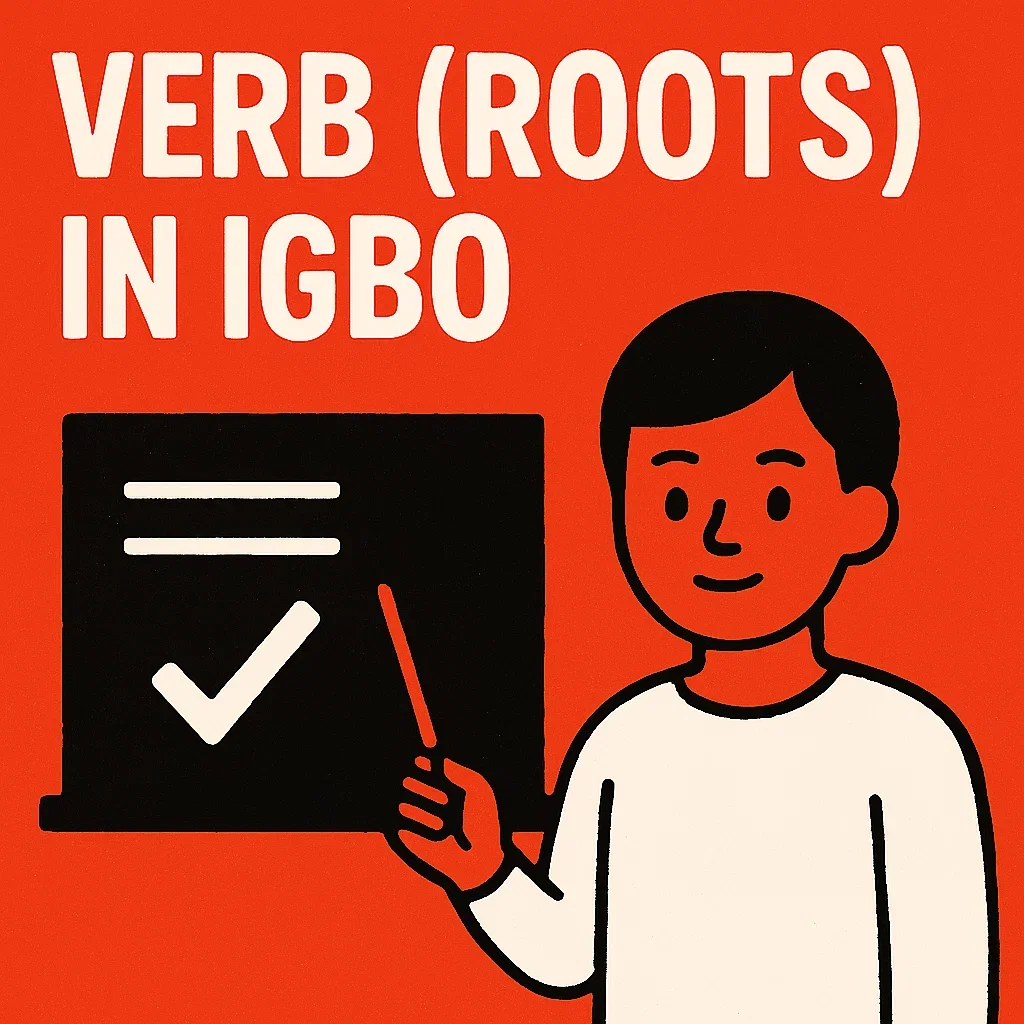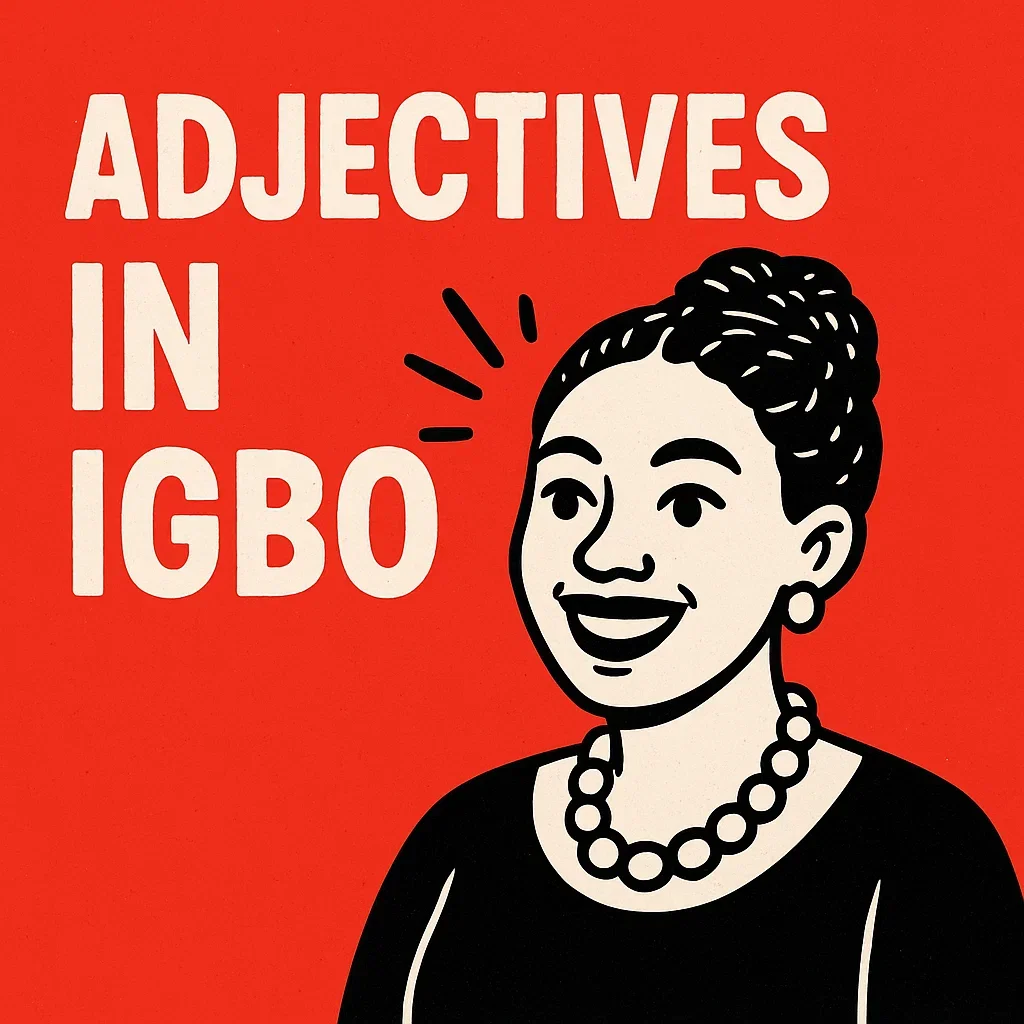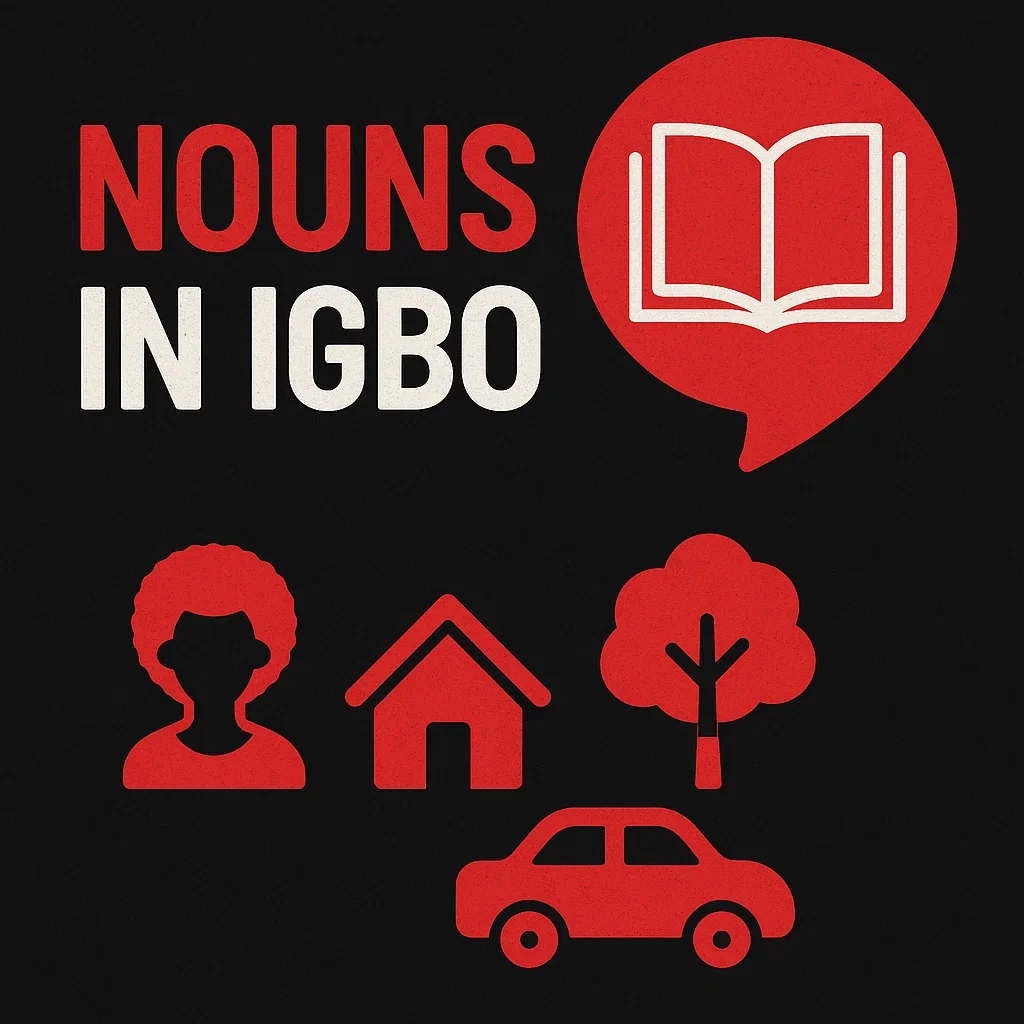Common Adjectives and Their Usage in Igbo Language taught by Uzoma Veer
This post is set to “Public View,” so anyone with a link can view it. Feel free to share with others.
Watch a recording of Session 20 from our free Igbo language class held on Zoom below ↓
Quick recap
The class began with a review of key Igbo language concepts, focusing on noun placement and the use of numbers to indicate plural forms. The session then transitioned into practical language learning activities, including pronunciation practice of English words in Igbo and discussions about various types of adjectives and their proper placement in sentences. The conversation ended with detailed instruction on demonstrative adjectives, articles, and the nuances of Igbo language usage, emphasizing the importance of correct pronunciation and context-based understanding rather than direct translation.
Next steps
All students to practice using adjectives in Igbo sentences for the next class.
All students to remember the three key points about adjectives in Igbo: adjectives generally come after nouns, with exceptions like "otu" and "otutu" which come before nouns, and demonstrative adjectives function as articles .
All students to review the vocabulary of Igbo adjectives covered in class.
Session Summary Notes
Igbo Noun and Adjective Placement
The class reviewed key concepts from the previous session, focusing on noun placement in sentences, the lack of special forms for plural nouns in Igbo, and the use of numbers to indicate plural. Uzoma emphasized that in Igbo, the number one precedes nouns, while other numbers follow, and explained that adjectives describe or qualify nouns, appearing after them. He also highlighted an exception to this rule, noting that quantifiers like "one" can precede nouns. The session concluded with a brief discussion on adjectives and their placement in sentences.
Igbo Pronunciation Practice Session
The group engaged in a language learning session focused on pronouncing English words in Igbo, with Uzoma leading the instruction. They practiced pronouncing words in black text in English while Uzoma provided the Igbo equivalents, with participants taking turns to repeat the Igbo words. The session included words related to various concepts like emotions, physical attributes, and actions, with participants receiving feedback on their pronunciation.
Adjective Types and Usage Discussion
Uzoma led a discussion on adjectives, focusing on three types: quality, size, and quantity. He explained how to use adjectives to describe people and objects, providing examples and encouraging participants to practice forming sentences with the adjectives they chose. Uzoma also covered the placement of numbers before or after nouns depending on the quantity being described.
Demonstrative Adjectives in English
The class focused on a discussion about demonstrative adjectives and their placement in sentences, particularly how they clarify which noun is being referred to when there are multiple nouns in a sentence. Uzoma explained that in English, demonstrative adjectives are typically placed after the noun they modify, while in some other languages they may be placed before. The group also discussed the concept of "enabler" words that indicate action, though the discussion was somewhat fragmented and included some mixed language usage.
Igbo Language Pronunciation Insights
Uzoma and Ada discussed the nuances of Igbo language, focusing on pronunciation and etymology. Uzoma explained that while certain phrases might be understood, they may not be spoken by native speakers in that way, emphasizing the importance of learning the correct pronunciation. They also touched on the challenges of direct translation between languages, highlighting how words can serve different functions in sentences.
Igbo Language Adjective Usage
The class focused on language learning, particularly the use of adjectives and articles in Igbo. Uzoma explained the concept of demonstrative adjectives and how articles can be used to specify particular nouns. They discussed the importance of understanding context rather than relying on direct translation when learning a new language. Uzoma also covered topics such as reduplication of colors for emphasis and the literal versus actual meanings of certain Igbo words.
Uzoma also explained that adjectives in Igbo come after the noun they describe and can be used to make speech more beautiful. They discussed the placement of adjectives and the importance of mastering their usage for effective communication in Igbo. Uzoma emphasized three key points to remember for the next class: the placement of adjectives before or after nouns, their function as demonstrative adjectives, and the use of articles with adjectives.
Meet Your Instructor
Uzoma Veer is a creative professional and founder of Veepress Integrated Services. Passionate about purposeful design and communication, Uzoma works as a UI designer, social media manager, Igbo tutor, translator, creative writer, and public speaker.



















